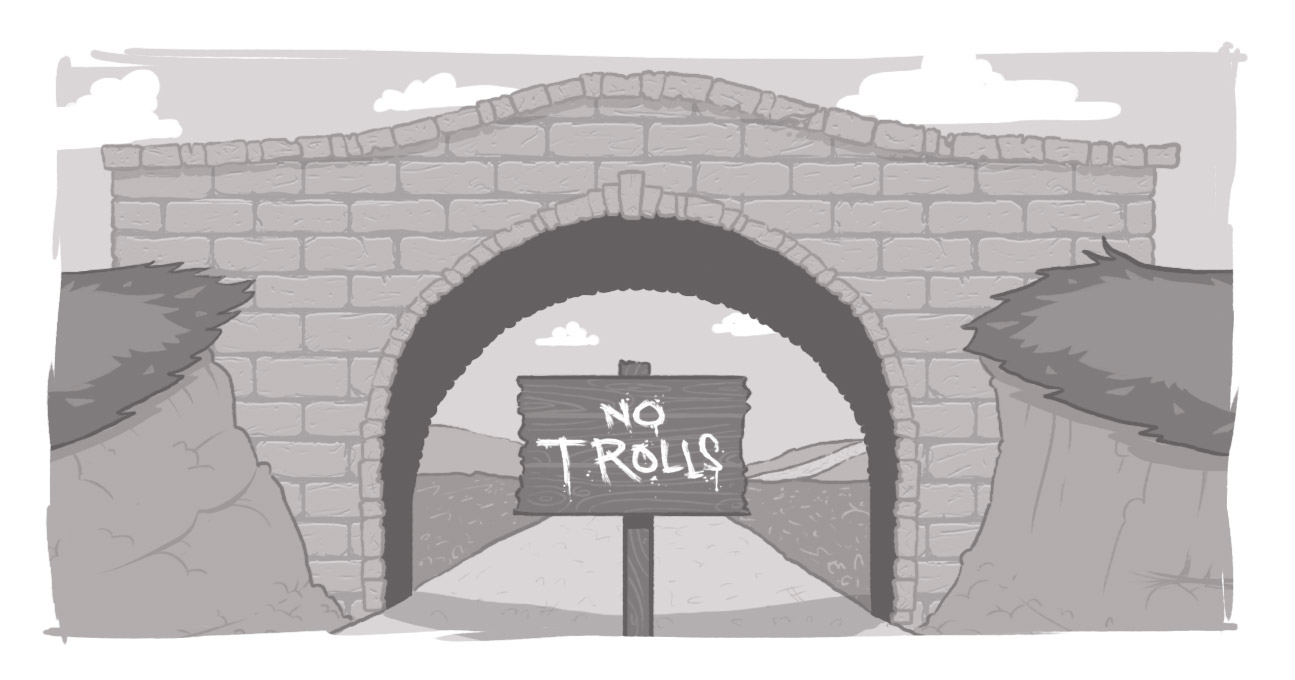Trolling Through the Muck Can Lead to Business Gold

Sometimes you have to sift through the muck to find that nugget of gold. So before you outright dismiss someone as a quote-unquote troll, you may want to dig a little deeper and ensure that there isn't a great message being obscured by an unfortunate medium.
Recently, The Globe and Mail ran a column that questioned "Can we have thoughtful online debates without the trolls?" Not only would I argue that you can, I'd also suggest that outright dismissing so-called trolls can cause you to miss incredible opportunities to better your business.
Again, you have to start by being honest with yourself. Trolls come in many shapes and sizes – and unfortunately there is far too many who assign the designation to someone who merely doesn't agree with them. It's a way to try to neuter the argument, instead of tackling it head on. Calling someone a troll and ignoring their point is easier than admitting there's a potential flaw in your argument or product, and dealing with it.
Secondly there are those trolls who are just out there to wreak havoc – posting intentionally hateful, racist, misogynist, and sexist comments simply to spark a reaction. They are the ones who abuse the anonymity of the Internet.
But the vast majority of so-called trolls actually off you an opportunity to grow and learn. Whether it's business or politics, some of your most aggressive and vocal critics may actually have a solid point. Their passion outshines their message, but if you take the time to dig into their points, you may find an opportunity to not only right a wrong, but gain a passionate brand advocate along the way.
If someone is posting on your Facebook page repeatedly about a product issue or service complaint, it's not enough to just brush them off as crazy. They may have a relevant issue. Sure, they may not frame it in the right way, but that doesn't mean it's not real.
We've discussed trolls in the past, including the importance of laying down some ground rules to keep the trolls at bay. You can use those techniques to try to maintain the decorum of your pages. But don't just discount these so-called trolls outright.
And whatever you do, don't go all Westwood on them. Entering into an on-line shouting match does nothing buy infantilize your persona or brand.
The best way to deal with them, if they have a valid concern, is to try to take it out of the public sphere. Try to interact with them off-line, either by e-mail or through private messages. Afford them the opportunity to call you. But try to learn more about what's making them so angry. Passion is a double-edged sword: if they're that angry at you for something, then if you can help them resolve their issue, you may find that you've now got the biggest supporter in your corner.
A lot of trolling is based on ignorance. Sometimes they only know part of the story, sometimes they've been misinformed by people with various agendas, and sometimes they're just overreacting to something because it strikes a chord with them personally. You have the opportunity to rectify all of that – you can fill in the gaps, show the proof, and provide statistics to change those perspectives.
And if they're right, you have a chance to acknowledge your error and take steps to rectify it.
Think of it this way, would you rather hear repeatedly from one angry customer, or would you rather never hear from the silent masses who may share those frustrations, but instead of telling you, they merely stop supporting your brand?
Remember, just because you don't like how somebody's saying something, doesn't mean what they're saying doesn't have merit.
So before you jump to brand and ban, take a few moments to look into the message that's being obscured. You may end up finding a nugget of gold once you sift through the muck.
Your thoughts? Comments are open. Have you ever had a positive experience with a so-called 'troll?' Or do you just ban outright immediately?
How do I deal with trolls?
Should I ban negative comments from my company's social media?
Can trolls be positive?
SUBSCRIBE TO OUR E-NEWSLETTER
 Subscribe
Subscribe


